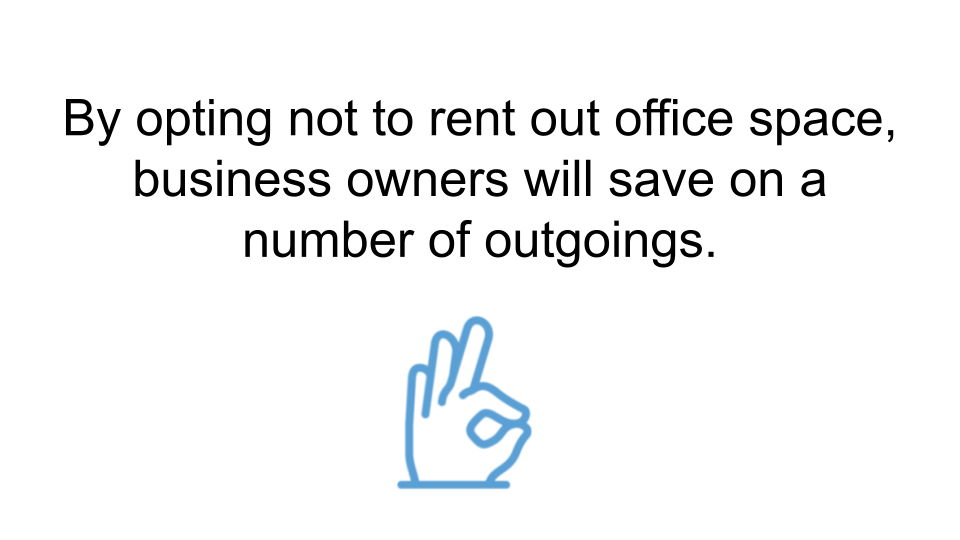The successful running behind a business takes time, energy and money. Regardless of what kind of business you are starting, be it service-based or product-based, there are a number of ways that you can save money.
This article will list some of the top tips you can follow to ensure that your business outgoings are kept as low as possible in order to save money.
Consider Whether Your Business Needs Office Space
Since the Covid pandemic, many businesses have now turned to hybrid working, with some even becoming fully remote. There is a greater understanding between business owners and employees that successful and productive work can be achieved from outside the office too, which has helped both parties to save money.
If your business is first starting out, it is worth considering whether renting an office is an expense that is really necessary at this point in time. This decision may involve having transparent conversations with employees as to whether they will be efficient working from home, or even have the space to utilise working from home effectively.
By opting not to rent out office space, business owners will save on a number of outgoings. These include rent, office furniture and technology, utility bills, as well as the general upkeep of the space. This will also allow workers to save money on their commutes too.
Savings Costs if Your Business Does Have an Office Space
If you decide that an office space is necessary, then it is certainly worth considering co-working spaces which have grown in popularity in the last couple of years. Co-working spaces allow a number of businesses to work and operate in the same space. They may share the same kitchen and bathrooms, but may also be entitled to book out their own meeting rooms when required. Furthermore, co-working spaces typically have a set fixed monthly charge, so bills are included and do not need to worried about.
If you decide to pursue a private office space, then you must consider the additional costs on top of rent. These include utility bills as well as maintenance costs. It is thus worth ensuring that you have calculated the full costs of an office for your business before signing the lease contract.
If you do have a private office space, ensure that you are keeping energy usage to a minimum. This means switching light bulbs to LED bulbs as well as turning off lights and appliances in the evenings and on the weekend.
Negotiate
Even if you are just starting out, it is important to remember that as a business owner you will have bargaining power with your potential suppliers. If you don’t ask, you won’t get. This could include trying to bargain down on telephone bills, internet, office furniture as well as set cleaning fees. It is always worth asking for a small discount on your monthly expenses.
Furthermore, you may even be able to negotiate your office’s rent with the landlord, especially if you make them aware of cheaper alternative buildings to rent for your business in the area.
Consider Staff Costs
When making your first, or additional hires, to your business, you must consider whether to hire an individual for a full-time, part-time, permanent or freelance role.
While a full time worker is likely to be highly productive as they are consecutively working on behalf of the business’ goals each day, they will need to be paid the same set amount each month, which can be difficult if you are trying to cut back on outgoings as this is a fixed element of your cash flow. Part-time workers may thus be a great alternative as they will cost less to your business each month, and may be available to help out when you need specific support. However, with part-time employees, it is important to note that they may not be fully-focused on the role or the business’ core objectives if they have another job to attend to too.
Freelance workers may thus serve as a great addition to your business. You will only be required to pay them for the job or hours that they are working, meaning that they will be motivated to get the job done both effectively and efficiently. However, similarly to part-time workers, they may lack motivation if they are only brought in for certain projects and may not understand the business’ vision as a whole.
As such, it is certainly worth evaluating what kind of employees will help to support your business goals, whilst also helping you to save money. What you may require may differ from quarter to quarter, meaning that part-time or freelance workers may fit the brief accordingly.
Follow the Pomodoro Technique
The Pomodoro Technique is a budget-friendly strategy that can help you to save money when running a business.
Essentially, the technique follows that your time is broken down into small, 25-minute chunks. Each chunk is devoted to a specific task so that you can focus all of your time and energy into what is important for that given time period.
In this way, both time and energy can be managed efficiently. By managing both, this will help to save money in the long-run as time can be devoted to other money-saving tasks or tasks that may have previously required outsourcing. Instead, these could be completed in-house.



